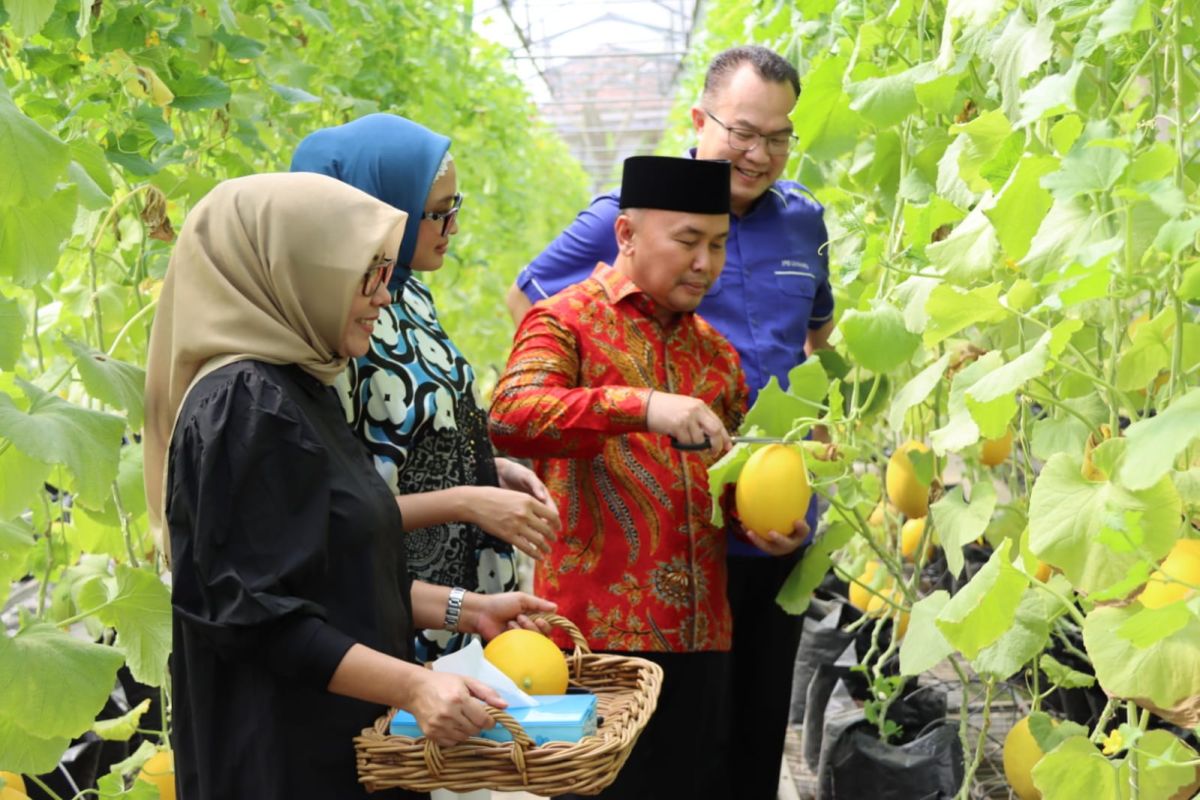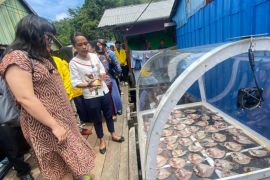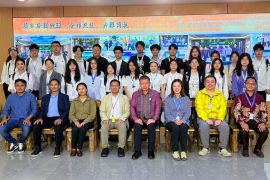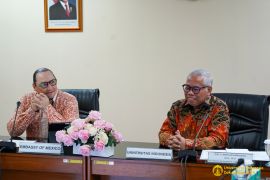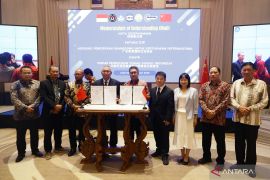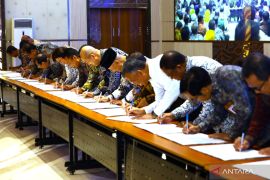Through international accreditations for more study programs, the universities are expected to draw more foreign students to their campuses and collaborate with international partners and researchers.
The presence of international students, teaching staff, and researchers at Indonesian universities reflects the recognition of their academic reputation --one of the several indicators that the QS World University Ranking (WUR) applies to assign university rankings.
Data provided by several leading universities in the country show that the international accreditations are provided by quality assurance agencies from such countries as the United States and EU members.
They include Germany's Akkreditierungsagentur für Studiengänge der Ingenieurwissenschaften, Informatik, Naturwissenschaften und Mathematik (ASIIN) and the Association to Advance Collegiate Schools of Business (AACSB) of the US.
Universities seeking international accreditations for their chemistry departments frequently approach the Royal Society of Chemistry (RSC).
The RSC, which has existed since 1841 and has more than 54 thousand members all over the world to “advance excellence in the chemical sciences,” has offices in the United Kingdom, the US, China, Germany, India and Japan.
The University of Indonesia's Faculty of Mathematics and Natural Sciences (FMIPA UI), for instance, recently received accreditation from the RSC for its chemistry master's program.
Prior to this achievement, the RSC also accredited the undergraduate program of FMIPA UI's Department of Chemistry.
According to the faculty's dean, Dede Djuhana, the accreditation has strengthened the evidence base for FMIPA UI's performance, especially in connection with Key Performance Indicator (IKU) Number 8.
IKU Number 8, which has become an essential part of the Indonesian government's parameters for evaluating a university's performance, pertains to the number of study programs with international accreditations.
FMIPA UI could obtain the accreditation thanks to the relatively solid foundation of its Department of Chemistry in such areas as qualified human resources, management, and facilities, Djuhana said in a recent statement.
The productive publication of scientific papers in reputable international journals also contributed to the department’s success in gaining international accreditation, he added.
All elements of the FMIPA UI's Department of Chemistry quickly responded to various policy changes. As a result, it was able to adapt to the new regulations regarding international accreditations.
All FMIPA UI study programs that have received international accreditation can be strengthened by expanding networks with international partners, Djuhana said.
Related news: Some 78 universities collaborate with world-class professors under WCP
The University of Indonesia is just one of the leading higher education institutions in the country to have successfully gained international accreditations for many of its study programs.
Based on the data that ANTARA obtained from UI's official website on Thursday (January 26, 2023), the university has obtained at least 39 international accreditations from several reputable quality assurance agencies.
A majority of UI's undergraduate programs, including those provided by its departments of English Literature and International Relations, have received accreditations from the ASEAN University Network-Quality Assessment (AUN-QA).
In addition to UI, Gadjah Mada University (UGM) in Yogyakarta has also been successful in obtaining international accreditations for over 50 undergraduate and postgraduate programs in the past few years.
As per information published on its official website, UGM, which is considered one of the nation’s centers of excellence by Indonesians, has so far received 55 international accreditations for its study programs.
They comprise 39 international accreditations for undergraduate degree programs, 11 for master's degree programs, 3 for Ph.D. programs, and 2 international accreditations for professional programs.
The public university has received the 55 international accreditations from several organizations, including AACSB, ASIIN, ABET, ICheme, IABEE, RSC, KAAB and FIBAA.
Related news: Universities should produce more specialist doctors: Health Minister
Remarkable achievements in gaining international accreditations have also been made by several other leading universities in Java, including the Bandung Institute of Technology (ITB) and Bogor Agricultural University (IPB).
What about universities outside Java? Several leading universities outside the island are also striving to follow in UI and UGM's footsteps to upscale their international reputation.
Hasanuddin University (Unhas) in South Sulawesi province, for example, has consistently made efforts to get its study programs accredited internationally by reputable quality assurance agencies.
The Makassar city-based university has so far obtained 53 international accreditations for its study programs at the undergraduate level, according to the university's official website.
The majority of the accreditations for undergraduate programs in natural sciences, engineering, and social sciences and humanities were awarded by AUN-QA.
Related news: Universities across Indonesia urged to pay more attention to STEM
Leading universities on the island of Sumatra, including the University of Sumatera Utara (USU) in Medan and Andalas University (Unand) in Padang, have also strived hard to get accreditations.
They, however, trail behind UI, UGM, ITB, and IPB in the number of internationally accredited study programs despite their importance in improving their QS World University Rankings.
Aware of the importance of raising its international reputation, USU held a workshop on "QS Ranking 2024 Methodology and Updates" on January 10, 2023, by inviting several universities in Sumatra Island.
USU Rector Muryanto Amin was quoted as saying at the workshop that he needed recommendations that were applicable to USU and other universities to improve their QS WUR achievements.
The QS WUR applies six indicators to determine its world-class university rankings. They are academic reputation, employer reputation, faculty/student ratio, citations per faculty, international student ratio and international faculty ratio.
For improving academic reputation which, according to QS WUR, accounts for 40 percent of the overall score, one of the areas that need to be strengthened is getting more study programs accredited internationally.
According to the QS WUR, “academic reputation looks at the teaching and research quality at the world's universities.”
Related news: Education Minister explores collaboration with American universities
Related news: Learn from foreign universities to develop entrepreneurship: Minister
Editor: Tia Mutiasari
Copyright © ANTARA 2023
